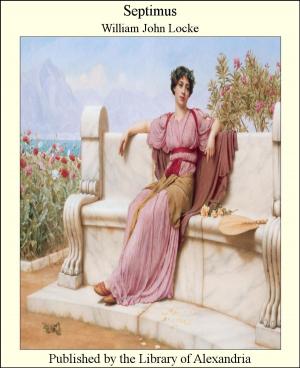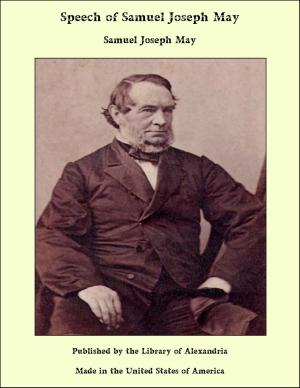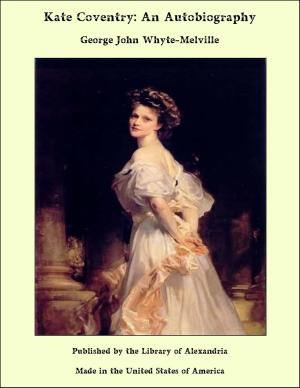| Author: | Fergus Hume | ISBN: | 9781465616777 |
| Publisher: | Library of Alexandria | Publication: | March 8, 2015 |
| Imprint: | Language: | English |
| Author: | Fergus Hume |
| ISBN: | 9781465616777 |
| Publisher: | Library of Alexandria |
| Publication: | March 8, 2015 |
| Imprint: | |
| Language: | English |
Eleven o'clock and a windy night! might have been the cry of a mediæval watchman at that hour on the 24th July 19--. Constable Mulligan was more reticent, as it formed no part of his duties to intimate publicly the time or the state of the weather. Nevertheless the bells of the Anglican Church, Troy, London, S.W., chimed the hour through the clamour of a high wind; and those people who were not in bed must have decided to retire. Not that any one appeared to be stirring. The lights were extinguished in all windows within the range of Mulligan's vision, and the flashing of his lantern on the doors and gates in Achilles Avenue showed that they were discreetly closed. Not even a tramp or a cat enlivened the roadway. Mulligan was apparently the sole waking person in a sleeping world. Troy was a bran-new suburb, built by a jerry-builder, who knew Greek history through the medium of Lempriere's Dictionary. This pseudo-scholar had erected classic villas with classic names in roads, avenues, and streets designated by Hellenic appellations. The rents in this anachronistic suburb were rather high, and the houses were inhabited mostly by stockbrokers, prosperous or not, according to their wits or the state of the money-market. There was also a sprinkling of schoolmasters, professors, and students, attracted by the phraseology of the place, which promised cultured surroundings. The drainage was perfect and the morals were unexceptional So new was the suburb, that not even a slum had been evolved to mar its cleanliness. The police, having little to do in so genteel a neighbourhood, were individually and collectively more for ornament than use. The ten years' history of the locality was one of order, intense respectability, and consequent dulness. Only in a rogues' purlieus is life picturesque and exciting. Mulligan was a black-haired giant, somewhat dull, but possessed of a dogged sense of duty, eminently useful when taken in conjunction with brute force. He paced his beat in a ruminative frame of mind, thinking, not unpleasantly, of a certain pretty housemaid, with whom he intended to walk out on Sunday. Being as talkative as Bunyan's character of that name, Mulligan would not have been displeased to meet a brother-officer, or even a stray reveller, with whom to converse. But his fellows were in other neighbourhoods, and revellers were unknown in the respectable streets of Troy; so Mulligan, for the sake of hearing his own voice, hummed a little song in a deep bass growl. He passed Hector Villa, Agamemnon Villa, Paris Villa, and Priam Villa, all of which were in darkness, enshrined in leafy gardens. At the gate of Ajax Villa he halted. A light in a first-floor window over the classic porch showed that the inmates had not yet retired. Also a woman was singing. Constable Mulligan, being fond of music, waited to hear the song. "Kathleen Mavourneen;" thought he, recognising the melody, "and a fine pipe she has who sings it. It's a party they'll be having within, with the tongues clapping and the whisky flowing. Begorra, it's myself that's wishing I had some of that same," and he wiped his mouth with a longing air.
Eleven o'clock and a windy night! might have been the cry of a mediæval watchman at that hour on the 24th July 19--. Constable Mulligan was more reticent, as it formed no part of his duties to intimate publicly the time or the state of the weather. Nevertheless the bells of the Anglican Church, Troy, London, S.W., chimed the hour through the clamour of a high wind; and those people who were not in bed must have decided to retire. Not that any one appeared to be stirring. The lights were extinguished in all windows within the range of Mulligan's vision, and the flashing of his lantern on the doors and gates in Achilles Avenue showed that they were discreetly closed. Not even a tramp or a cat enlivened the roadway. Mulligan was apparently the sole waking person in a sleeping world. Troy was a bran-new suburb, built by a jerry-builder, who knew Greek history through the medium of Lempriere's Dictionary. This pseudo-scholar had erected classic villas with classic names in roads, avenues, and streets designated by Hellenic appellations. The rents in this anachronistic suburb were rather high, and the houses were inhabited mostly by stockbrokers, prosperous or not, according to their wits or the state of the money-market. There was also a sprinkling of schoolmasters, professors, and students, attracted by the phraseology of the place, which promised cultured surroundings. The drainage was perfect and the morals were unexceptional So new was the suburb, that not even a slum had been evolved to mar its cleanliness. The police, having little to do in so genteel a neighbourhood, were individually and collectively more for ornament than use. The ten years' history of the locality was one of order, intense respectability, and consequent dulness. Only in a rogues' purlieus is life picturesque and exciting. Mulligan was a black-haired giant, somewhat dull, but possessed of a dogged sense of duty, eminently useful when taken in conjunction with brute force. He paced his beat in a ruminative frame of mind, thinking, not unpleasantly, of a certain pretty housemaid, with whom he intended to walk out on Sunday. Being as talkative as Bunyan's character of that name, Mulligan would not have been displeased to meet a brother-officer, or even a stray reveller, with whom to converse. But his fellows were in other neighbourhoods, and revellers were unknown in the respectable streets of Troy; so Mulligan, for the sake of hearing his own voice, hummed a little song in a deep bass growl. He passed Hector Villa, Agamemnon Villa, Paris Villa, and Priam Villa, all of which were in darkness, enshrined in leafy gardens. At the gate of Ajax Villa he halted. A light in a first-floor window over the classic porch showed that the inmates had not yet retired. Also a woman was singing. Constable Mulligan, being fond of music, waited to hear the song. "Kathleen Mavourneen;" thought he, recognising the melody, "and a fine pipe she has who sings it. It's a party they'll be having within, with the tongues clapping and the whisky flowing. Begorra, it's myself that's wishing I had some of that same," and he wiped his mouth with a longing air.















